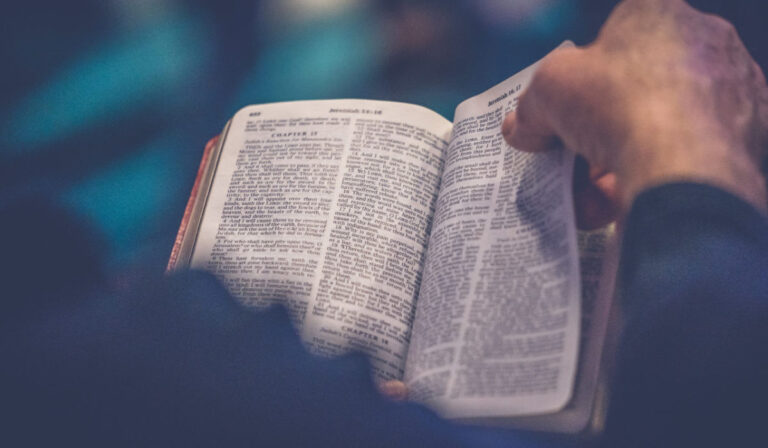Adam’s Disobedience and Human Imperfection, A Clear Bible View
The Bible’s storyline is simple enough to retell in a few breaths: a perfect start, one act of disobedience, and then the start of human imperfection. From there, the rest of the story makes sense, not as philosophy, but as cause and effect.
This article gives a clear, Bible-based view of Adam’s disobedience and human imperfection. It won’t chase theories or blame-shifting. Instead, it will stay close to the passages that explain the problem and the cure, mainly Genesis 2 and 3, Romans 5, and 1 Corinthians 15.
A few terms help. Sin is breaking God’s standard, not just making a mistake. Imperfection is the inner bent that makes wrongdoing easier than it should be. Death is exactly what it sounds like, life ending, and the loss that follows. With those basics in place, the Bible’s logic becomes clearer, and so does its hope.
What Adam was told, and what he chose instead
Eden wasn’t confusing. The first man didn’t face a maze of rules. He received a clear life, a clear home, and a clear boundary. That boundary wasn’t arbitrary. It created a real moment of choice.
The command about the tree mattered because it tested obedience. It also tested trust. Would the man accept God as the One who sets right and wrong, or would he reach for independence?
The point wasn’t the fruit itself. The real issue was loyalty. Think of it like a “Do not enter” sign on a safe, open road. The sign isn’t there to spoil the journey. It shows who you trust to mark danger.
Once the line was crossed, the outcome was not a surprise. God had warned him plainly. When someone receives clear guidance, responsibility becomes clear too. That is why the early chapters of Genesis read like a straightforward account, not a riddle.
A simple command with a serious meaning
Genesis shows the command in plain words, with a plain warning:
“Jehovah God also gave this command to the man: ‘From every tree of the garden you may eat to satisfaction. But as for the tree of the knowledge of good and bad, you must not eat from it, for in the day you eat from it you will certainly die.'”,(Genesis, 2:16-17)
Notice what stands out. The permission is generous, “every tree” and “to satisfaction.” The restriction is narrow, one tree. So the command doesn’t paint God as harsh. It presents him as a Provider who also sets limits for good reasons.
Clear guidance also removes confusion. The man couldn’t say he didn’t understand. He wasn’t pressured by unclear terms. He knew the boundary, and he knew the stated result.
That matters for anyone who wonders why the Bible treats the first disobedience as serious. The act was not a slip. It was a chosen step away from God’s authority, taken with eyes open to the warning.
How the lie worked, and why it still works
Genesis 3:1-6 describes a familiar pattern. First came a question that twisted God’s words. Then came an attack on God’s motives, hinting that God was holding something back. Finally came a promise: independence, like God, deciding for yourself.
That pattern still feels modern because it targets the same desire. People want control. They want the freedom to set their own standards. The temptation often sounds reasonable: “I decide what’s right for me.” Yet that idea quietly shifts the centre of moral authority from God to the self.
The lie also reframed consequences. Instead of “you will certainly die,” the claim became “you will not die.” In other words, the serpent didn’t only question God’s rule, it denied God’s warning. That combination is powerful. When someone doubts God’s love and doubts God’s honesty, disobedience can start to feel like progress.
A small act can carry a big meaning. Eating the fruit was not about appetite. It was a statement, “I’ll choose my own rule.” The Bible treats it as treason, not a snack.
How Adam’s disobedience led to human imperfection
After the first sin, the Bible traces a direct line: sin entered, death followed, and imperfection spread. Romans 5 doesn’t treat this as a myth or a metaphor. It treats it as the explanation for why the whole human family suffers, even when we hate suffering.
The Bible’s point is moral and spiritual, not biological. It doesn’t argue about genes. It explains why humans are born into a condition where doing wrong is easy, doing right is hard, and death waits at the end of every road.
This also matches what we see. Even people with strong values feel inner conflict. Good intentions don’t always produce good actions. Relationships strain, bodies weaken, minds tire, and time runs out. The Bible says this shared experience has a shared cause.
Sin and death spread to all because Adam sinned first
Romans 5:12 states the chain in one sentence:
“That is why, just as through one man sin entered into the world and death through sin, and so death spread to all men because they had all sinned.”,(Romans, 5:12)
The verse starts with “one man,” then ends with “all.” That’s the Bible’s cause-and-effect. One act opened the door. After that, sin became normal, and death became universal.
“Inherited imperfection” can sound abstract, so picture a simple illustration. Imagine a mould used to shape clay pots. If the mould cracks, every pot formed in it carries the flaw. The clay still matters, and each pot still has its own shape, but the damage repeats. In a similar way, the first human family line became flawed at the source, and the flaw spread.
This doesn’t remove personal responsibility. Romans 5:12 still says “they had all sinned.” Each of us chooses wrong at times. Yet it explains why the struggle is shared and why no one wins against death by willpower.
What “imperfection” looks like in everyday life
Imperfection is not only about major crimes. It shows up in ordinary days. A sharp word comes out too quickly. Jealousy flares over someone else’s success. Self-control slips when stress rises. Even when we want peace, we can feed anger.
It also shows up in our bodies. Sickness interrupts plans. Ageing changes what we can do. Energy fades. Most painfully, death ends lives and leaves grief behind.
The Bible describes this as universal, not limited to “bad people”:
“For all have sinned and fall short of the glory of God.”,(Romans, 3:23)
That verse doesn’t flatten the difference between kindness and cruelty. It simply tells the truth that everyone falls short of God’s standard. When we accept that, we stop pretending. We also stop being shocked by our own weakness, and we can seek help in the right place.
Here’s a helpful way to hold the idea. Imperfection is like a bent compass needle. It still points somewhere, but it doesn’t point true north on its own. Without correction, it leads off course.
Human imperfection isn’t only what we do wrong, it’s also why doing right can feel like swimming against a current.
Clearing up common misunderstandings about Adam, sin, and fairness
When people read Genesis, they often feel the weight of one question: “Why should anyone else suffer for that first choice?” The Bible doesn’t brush that question aside. Instead, it answers it through family reality and through God’s long-term solution.
It also helps to see what the first sin really was. Many assume the story is about food rules. In the Bible’s own framing, it is about rulership, trust, and moral authority. Once that is clear, the fairness questions become easier to place.
Compassion matters here. People who suffer illness, loss, or injustice aren’t helped by harsh words. The Bible’s teaching aims to explain why life hurts, while also pointing to a way out.
Is it fair to suffer for someone else’s mistake?
In everyday life, people inherit consequences they didn’t choose. A parent’s debt can limit a child’s options. A parent’s addiction can scar a home. On the other hand, a parent’s wisdom can create stability for years. This is not cruelty, it’s how family life works in a connected world.
The Bible presents the first man as a family head. When he stepped away from God’s rule, he didn’t only damage himself. He damaged what he could pass on. So the unfairness we feel is often the pain of connection. We are not isolated units, we are linked.
At the same time, the Bible balances this with hope. God’s answer does not leave the human family trapped. He provides a rescue that also works through a family head, but this time through an obedient one. That is where the story turns towards mercy.
Did Adam “ruin everything”, or did he choose a different ruler?
The heart of the issue is rulership. The first sin said, in effect, “I’ll live without God setting the terms.” That choice replaced loving guidance with self-rule, and self-rule quickly proved too small for the job.
The Bible also states a hard consequence: sin pays wages, and the wage is death.
“For the wages sin pays is death, but the gift God gives is everlasting life by Christ Jesus our Lord.”,(Romans, 6:23)
That verse does two things. It confirms the seriousness of sin, and it introduces God’s gift. So while the first disobedience opened a door to imperfection, God did not step back in cold silence. He acted with a purpose, and he set a way to undo the damage without pretending the damage is small.
God’s answer to human imperfection, hope through Jesus
If Adam’s disobedience brought loss, the Bible presents Jesus as the matching answer. The term “ransom” can sound old-fashioned, but the idea is simple: an equal price paid to release others. Adam lost perfect life and brought death to his offspring. Jesus gave his perfect life and opened the way to life for others.
This is why the Bible calls Jesus “the last Adam.” The comparison is not poetic. It is practical. One man chose disobedience and spread harm. Another man chose obedience and made rescue possible.
Christian hope is not built on pretending people are basically fine. It is built on God’s promise to fix what humans cannot fix. That includes sin, suffering, and death.
Jesus succeeded where Adam failed
Paul explains the link between the two men, and the two outcomes:
“For since death came through a man, resurrection of the dead also comes through a man. For just as in Adam all are dying, so also in the Christ all will be made alive.”,(1 Corinthians, 15:21-22)
The contrast is clear. Adam connects with dying. Christ connects with being made alive. The verse doesn’t say everyone automatically lives forever right now. It shows the direction of God’s purpose, and the basis for it.
Paul also uses the “last Adam” title to underline the role Jesus plays:
“So it is written: ‘The first man Adam became a living person.’ The last Adam became a life-giving spirit.”,(1 Corinthians, 15:45)
Adam received life. Jesus provides life. That difference is the hinge of the Bible’s hope. Human imperfection is real, but it is not the final word.
What this hope can change for you now
Bible hope is not only for the future. It can change how you live today. Knowing why people struggle can soften resentment. Knowing God offers forgiveness can lift shame. Knowing Jesus stayed obedient under pressure can strengthen your own choices.
A clean conscience is possible, not because people become flawless overnight, but because God can forgive. In addition, hope helps you endure pain without calling life meaningless. It gives suffering a time limit.
The Bible ends with a picture of what God intends for obedient humans, and it speaks directly to common fears:
***”With that I heard a loud voice from the throne say: ‘Look! The tent of God is with mankind, and he will reside with them, and they will be his people. And God himself will be with them. Adam’s Disobedience and Human Imperfection, A Clear Bible View
The Bible’s storyline is simple enough to retell in a few breaths: a perfect start, one act of disobedience, and then the start of human imperfection. From there, the rest of the story makes sense, not as philosophy, but as cause and effect.
This article gives a clear, Bible-based view of Adam’s disobedience and human imperfection. It won’t chase theories or blame-shifting. Instead, it will stay close to the passages that explain the problem and the cure, mainly Genesis 2 and 3, Romans 5, and 1 Corinthians 15.
A few terms help. Sin is breaking God’s standard, not just making a mistake. Imperfection is the inner bent that makes wrongdoing easier than it should be. Death is exactly what it sounds like, life ending, and the loss that follows. With those basics in place, the Bible’s logic becomes clearer, and so does its hope.
What Adam was told, and what he chose instead
Eden wasn’t confusing. The first man didn’t face a maze of rules. He received a clear life, a clear home, and a clear boundary. That boundary wasn’t arbitrary. It created a real moment of choice.
The command about the tree mattered because it tested obedience. It also tested trust. Would the man accept God as the One who sets right and wrong, or would he reach for independence?
The point wasn’t the fruit itself. The real issue was loyalty. Think of it like a “Do not enter” sign on a safe, open road. The sign isn’t there to spoil the journey. It shows who you trust to mark danger.
Once the line was crossed, the outcome was not a surprise. God had warned him plainly. When someone receives clear guidance, responsibility becomes clear too. That is why the early chapters of Genesis read like a straightforward account, not a riddle.
A simple command with a serious meaning
Genesis shows the command in plain words, with a plain warning:
“Jehovah God also gave this command to the man: ‘From every tree of the garden you may eat to satisfaction. But as for the tree of the knowledge of good and bad, you must not eat from it, for in the day you eat from it you will certainly die.'”,(Genesis, 2:16-17)
Notice what stands out. The permission is generous, “every tree” and “to satisfaction.” The restriction is narrow, one tree. So the command doesn’t paint God as harsh. It presents him as a Provider who also sets limits for good reasons.
Clear guidance also removes confusion. The man couldn’t say he didn’t understand. He wasn’t pressured by unclear terms. He knew the boundary, and he knew the stated result.
That matters for anyone who wonders why the Bible treats the first disobedience as serious. The act was not a slip. It was a chosen step away from God’s authority, taken with eyes open to the warning.
How the lie worked, and why it still works
Genesis 3:1-6 describes a familiar pattern. First came a question that twisted God’s words. Then came an attack on God’s motives, hinting that God was holding something back. Finally came a promise: independence, like God, deciding for yourself.
That pattern still feels modern because it targets the same desire. People want control. They want the freedom to set their own standards. The temptation often sounds reasonable: “I decide what’s right for me.” Yet that idea quietly shifts the centre of moral authority from God to the self.
The lie also reframed consequences. Instead of “you will certainly die,” the claim became “you will not die.” In other words, the serpent didn’t only question God’s rule, it denied God’s warning. That combination is powerful. When someone doubts God’s love and doubts God’s honesty, disobedience can start to feel like progress.
A small act can carry a big meaning. Eating the fruit was not about appetite. It was a statement, “I’ll choose my own rule.” The Bible treats it as treason, not a snack.
How Adam’s disobedience led to human imperfection
After the first sin, the Bible traces a direct line: sin entered, death followed, and imperfection spread. Romans 5 doesn’t treat this as a myth or a metaphor. It treats it as the explanation for why the whole human family suffers, even when we hate suffering.
The Bible’s point is moral and spiritual, not biological. It doesn’t argue about genes. It explains why humans are born into a condition where doing wrong is easy, doing right is hard, and death waits at the end of every road.
This also matches what we see. Even people with strong values feel inner conflict. Good intentions don’t always produce good actions. Relationships strain, bodies weaken, minds tire, and time runs out. The Bible says this shared experience has a shared cause.
Sin and death spread to all because Adam sinned first
Romans 5:12 states the chain in one sentence:
“That is why, just as through one man sin entered into the world and death through sin, and so death spread to all men because they had all sinned.”,(Romans, 5:12)
The verse starts with “one man,” then ends with “all.” That’s the Bible’s cause-and-effect. One act opened the door. After that, sin became normal, and death became universal.
“Inherited imperfection” can sound abstract, so picture a simple illustration. Imagine a mould used to shape clay pots. If the mould cracks, every pot formed in it carries the flaw. The clay still matters, and each pot still has its own shape, but the damage repeats. In a similar way, the first human family line became flawed at the source, and the flaw spread.
This doesn’t remove personal responsibility. Romans 5:12 still says “they had all sinned.” Each of us chooses wrong at times. Yet it explains why the struggle is shared and why no one wins against death by willpower.
What “imperfection” looks like in everyday life
Imperfection is not only about major crimes. It shows up in ordinary days. A sharp word comes out too quickly. Jealousy flares over someone else’s success. Self-control slips when stress rises. Even when we want peace, we can feed anger.
It also shows up in our bodies. Sickness interrupts plans. Ageing changes what we can do. Energy fades. Most painfully, death ends lives and leaves grief behind.
The Bible describes this as universal, not limited to “bad people”:
“For all have sinned and fall short of the glory of God.”,(Romans, 3:23)
That verse doesn’t flatten the difference between kindness and cruelty. It simply tells the truth that everyone falls short of God’s standard. When we accept that, we stop pretending. We also stop being shocked by our own weakness, and we can seek help in the right place.
Here’s a helpful way to hold the idea. Imperfection is like a bent compass needle. It still points somewhere, but it doesn’t point true north on its own. Without correction, it leads off course.
Human imperfection isn’t only what we do wrong, it’s also why doing right can feel like swimming against a current.
Clearing up common misunderstandings about Adam, sin, and fairness
When people read Genesis, they often feel the weight of one question: “Why should anyone else suffer for that first choice?” The Bible doesn’t brush that question aside. Instead, it answers it through family reality and through God’s long-term solution.
It also helps to see what the first sin really was. Many assume the story is about food rules. In the Bible’s own framing, it is about rulership, trust, and moral authority. Once that is clear, the fairness questions become easier to place.
Compassion matters here. People who suffer illness, loss, or injustice aren’t helped by harsh words. The Bible’s teaching aims to explain why life hurts, while also pointing to a way out.
Is it fair to suffer for someone else’s mistake?
In everyday life, people inherit consequences they didn’t choose. A parent’s debt can limit a child’s options. A parent’s addiction can scar a home. On the other hand, a parent’s wisdom can create stability for years. This is not cruelty, it’s how family life works in a connected world.
The Bible presents the first man as a family head. When he stepped away from God’s rule, he didn’t only damage himself. He damaged what he could pass on. So the unfairness we feel is often the pain of connection. We are not isolated units, we are linked.
At the same time, the Bible balances this with hope. God’s answer does not leave the human family trapped. He provides a rescue that also works through a family head, but this time through an obedient one. That is where the story turns towards mercy.
Did Adam “ruin everything”, or did he choose a different ruler?
The heart of the issue is rulership. The first sin said, in effect, “I’ll live without God setting the terms.” That choice replaced loving guidance with self-rule, and self-rule quickly proved too small for the job.
The Bible also states a hard consequence: sin pays wages, and the wage is death.
“For the wages sin pays is death, but the gift God gives is everlasting life by Christ Jesus our Lord.”,(Romans, 6:23)
That verse does two things. It confirms the seriousness of sin, and it introduces God’s gift. So while the first disobedience opened a door to imperfection, God did not step back in cold silence. He acted with a purpose, and he set a way to undo the damage without pretending the damage is small.
God’s answer to human imperfection, hope through Jesus
If Adam’s disobedience brought loss, the Bible presents Jesus as the matching answer. The term “ransom” can sound old-fashioned, but the idea is simple: an equal price paid to release others. Adam lost perfect life and brought death to his offspring. Jesus gave his perfect life and opened the way to life for others.
This is why the Bible calls Jesus “the last Adam.” The comparison is not poetic. It is practical. One man chose disobedience and spread harm. Another man chose obedience and made rescue possible.
Christian hope is not built on pretending people are basically fine. It is built on God’s promise to fix what humans cannot fix. That includes sin, suffering, and death.
Jesus succeeded where Adam failed
Paul explains the link between the two men, and the two outcomes:
“For since death came through a man, resurrection of the dead also comes through a man. For just as in Adam all are dying, so also in the Christ all will be made alive.”,(1 Corinthians, 15:21-22)
The contrast is clear. Adam connects with dying. Christ connects with being made alive. The verse doesn’t say everyone automatically lives forever right now. It shows the direction of God’s purpose, and the basis for it.
Paul also uses the “last Adam” title to underline the role Jesus plays:
“So it is written: ‘The first man Adam became a living person.’ The last Adam became a life-giving spirit.”,(1 Corinthians, 15:45)
Adam received life. Jesus provides life. That difference is the hinge of the Bible’s hope. Human imperfection is real, but it is not the final word.
What this hope can change for you now
Bible hope is not only for the future. It can change how you live today. Knowing why people struggle can soften resentment. Knowing God offers forgiveness can lift shame. Knowing Jesus stayed obedient under pressure can strengthen your own choices.
A clean conscience is possible, not because people become flawless overnight, but because God can forgive. In addition, hope helps you endure pain without calling life meaningless. It gives suffering a time limit.
The Bible ends with a picture of what God intends for obedient humans, and it speaks directly to common fears:
***”With that I heard a loud voice from the throne say: ‘Look! The tent of God is with mankind, and he will reside with them, and they will be his people. And God himself will be with them:
“He will wipe out every tear from their eyes, and death will be no more, neither will mourning nor outcry nor pain be anymore. The former things have passed away.”
—Revelation 21:4,








